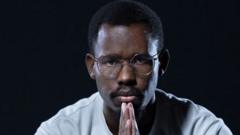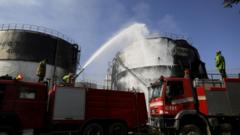As Benjamin Netanyahu faces critical testimony in his corruption trial, he has requested a delay, citing wartime duties. Critics argue the move is a tactic to avoid prison, amidst further allegations of misconduct within his government.
Netanyahu Seeks Delay in Corruption Trial Amid Ongoing Crisis

Netanyahu Seeks Delay in Corruption Trial Amid Ongoing Crisis
Israeli Prime Minister Benjamin Netanyahu requests a postponement in his corruption trial as allegations grow, raising concerns over his motives and leadership during wartime.
Israeli Prime Minister Benjamin Netanyahu is once again in the spotlight as he seeks to postpone his testimony in a high-profile corruption trial. The trial has been ongoing since 2020 and is set to culminate this December with crucial sessions involving Netanyahu himself. He stands accused of bribery and fraud, which allegedly involve using his political influence for gifts and favorable media treatment from leading businessmen.
On Sunday evening, Netanyahu's legal representatives submitted a request to delay his court appearance by two and a half months. Amit Hadad, one of his attorneys, argued that the prime minister is overwhelmed with state responsibilities due to the current wartime situation in Israel and thus requires additional time to adequately prepare his defense.
However, this request has sparked fierce criticism from opposition figures. Yair Golan, for instance, asserted that Netanyahu’s primary concern appears to be avoiding jail time rather than genuine governance. The opposition sees the request as a clear strategy to delay the resolution of the trial, hoping to push the verdict further into the future.
Compounding the prime minister's troubles are new allegations concerning his office's conduct. Investigators are probing whether aides leaked sensitive intelligence to the media and manipulated official records of phone calls during critical moments of the ongoing conflict. Netanyahu has vehemently denied these accusations, labeling them as "fake news" aimed at undermining his authority amid challenging circumstances.
As Netanyahu navigates this complex legal and political landscape, reactions continue to emerge from various sectors of the Israeli public and political sphere. The interplay of ongoing conflict and legal scrutiny adds another layer to an already tense political environment in Israel. With December approaching, the implications of this trial could have significant ramifications not just for Netanyahu but for the government as well.



















